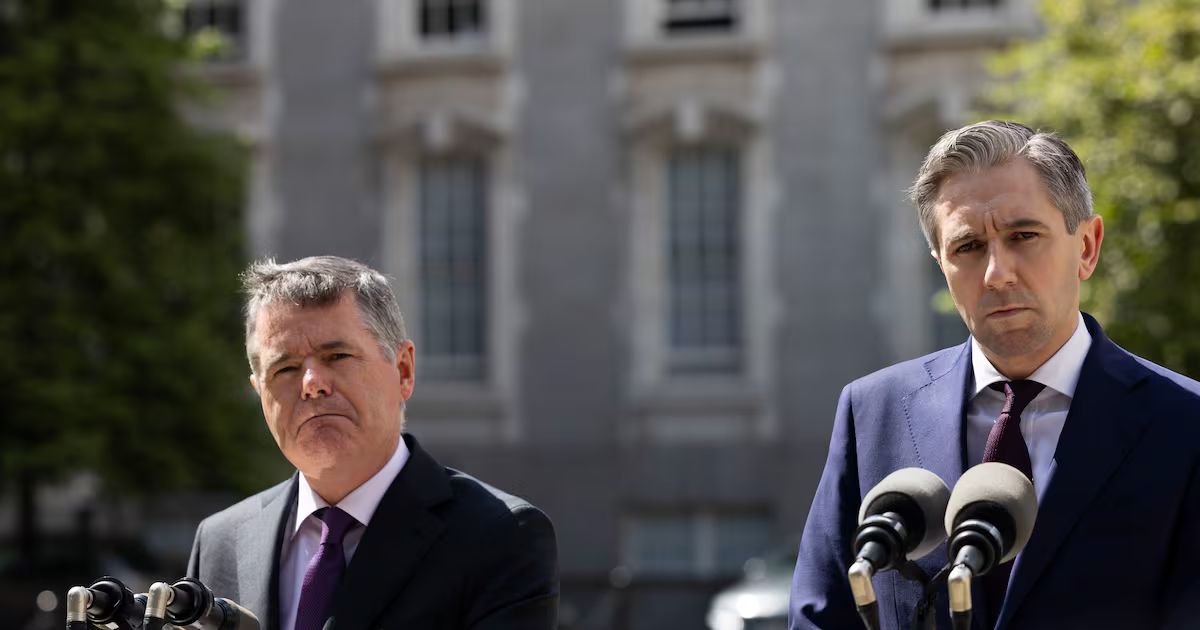Gov. Tony Evers warns food assistance will run out in 9 days without federal funds

Government shutdown impacts SNAP benefits
State health officials say food assistance could be cut off for millions if the government doesn’t reopen in the next few days.
Fox – 4 News
- Wisconsin’s FoodShare program funding is set to run out in about a week due to the federal government shutdown.
- Governor Tony Evers has urged the U.S. Department of Agriculture to provide stopgap funding to prevent a lapse in benefits.
- Nearly 700,000 Wisconsin residents who rely on the food assistance program could be affected.
- The federal government shutdown has continued for 22 days amid a stalemate between Democrats and Republicans in Congress.
MADISON – Funding for Wisconsin’s food assistance program will run out in about a week if federal officials do not secure a stopgap while the government shutdown continues, Gov. Tony Evers told the U.S. Agriculture secretary Wednesday.
Evers in a letter to Brooke Rollins, who oversees the U.S. Department of Agriculture, said the federal government shutdown is projected to affect nearly 700,000 Wisconsin residents who utilize federal funding through the state food program known as FoodShare. He said funding for FoodShare will disappear in nine days.
FoodShare is administered by state officials as part of the federal Supplemental Nutrition Assistance Program. The state needs $114 million per month to fully fund the program, according to Department of Health Services Secretary Kirsten Johnson.
Evers asked Rollins to transfer temporary funding set aside for food and grocery costs to keep the program running through the shutdown. The agency provided similar stopgap funding to keep afloat the Special Supplemental Nutrition Program for Women, Infants, and Children in Wisconsin, known as WIC.
“USDA must use all available legal authorities, and there is simply nojustification for failing to use these same authorities to protect SNAP recipients,” Evers wrote.
“The Trump Administration must immediately use every legal option available to it to maintain food security and continuity in Wisconsin and to develop immediate solutions to mitigate any preventable lapse in providing basic necessities like food and groceries to kids, families, veterans, and seniors across our state,” he said.
“The timeline is urgent, and the consequences are severe.”
A spokeswoman for the Trump administration did not immediately react to the governor’s remarks.
In 2024, about 1 in 8 people in Wisconsin received SNAP benefits, according to the Center for Budget and Policy Priorities. The average monthly benefit for a Wisconsin household was $161.
The federal government shutdown is in its 22nd day and Democrats and Republicans on Capitol Hill appear no closer to a deal to reopen it.
House Republicans last month passed a seven-week stopgap funding bill, known as a continuing resolution, that included millions of additional dollars in security for members.
But the measure stalled in the Senate as Democrats have demanded provisions extending Affordable Care Act insurance plan subsidies that will expire at the end of the year. Republicans need support from a handful of Senate Democrats to bypass the chamber’s 60-vote filibuster.
Britt Cudaback, spokeswoman for Evers, said the Evers administration is “actively working to advocate to the Trump Administration to take immediate steps they can to enable SNAP benefits to be paid through — or close to — the end of November.”
Cudaback also said the Evers administration is waiting for Republican lawmakers who control the state Legislature to act on a request to approve $69.2 million to pay for costs associated with implementing President Donald Trump’s One Big Beautiful Bill law.
“Our request was provided to Republican leaders now nearly two months ago after they committed during bipartisan budget negotiations that they would work to address any unanticipated shortfalls caused by the ‘Big Beautiful Bill’ passage that we could not have accounted for in the state budget,” Cudaback said.
Evers told reporters at an event in Racine on Oct. 22 that he would need the Legislature’s approval to use any budget surplus funds to cover November FoodShare benefits. He emphasized that it was the federal government’s responsibility to fund the program.
“As far as my ability to do something unilaterally, you would have to have the legislators’ approval,” he said. “It’s not that they wouldn’t do it but we’re not flush with money here. This is something that can be fixed in Washington, D.C., and it should be fixed there.”
When asked on Oct. 14 if Senate Republicans were considering measures to address funding lapses, Senate Majority Leader Devin LeMahieu said he would only discuss bills being taken up that day on the Senate floor.
LeMahieu and a spokesman for Assembly Speaker Robin Vos have not yet responded to requests for comment this week.
On Capitol Hill, top Wisconsin Republicans had few answers to filling the FoodShare hole other than reopening the federal government. U.S. Rep. Tom Tiffany, who is the GOP frontrunner for governor, laid blame on Democratic U.S. Sen. Tammy Baldwin for voting against Republicans’ measure to reopen the government. Republican U.S. Sen. Ron Johnson made similar remarks.
“What we should do is we should — we will vote again on the continuing resolution to open up the government, and that’s what we should do,” Johnson told the Milwaukee Journal Sentinel. “They’re blocking everything. Democrats are blocking everything.”
Asked if the state should allocate funds to cover FoodShare costs until the federal government reopens, Johnson replied: “It’ll be up to the state government. What ought to happen here is Democrats ought to vote to open the government.”
Molly Beck, Lawrence Andrea and Sarah Volpenhein can be reached at molly.beck@jrn.com, landrea@gannett.com and svolpenhei@nncogannett.com.
(This story was updated to include new information.)





